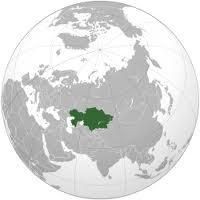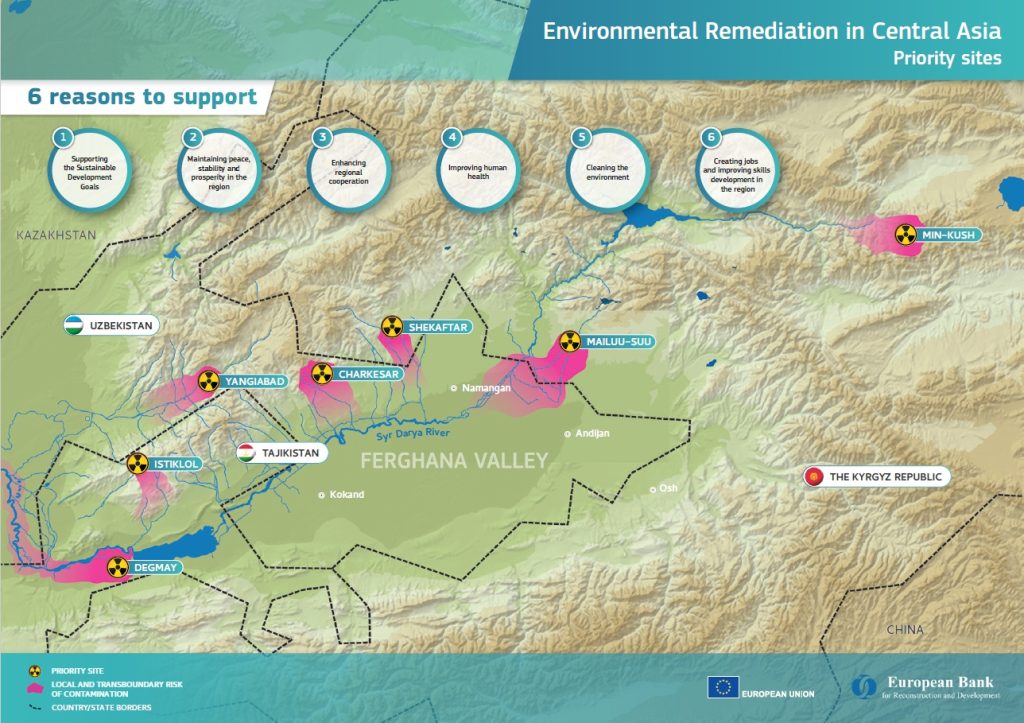TASHKENT (TCA) — Russian President Vladimir Putin and Uzbek President Shavkat Mirziyoev have launched the construction of a nuclear power plant in Uzbekistan's western region of Navoi, which Moscow estimates will cost $11 billion, RFE/RL's Uzbek Service reported. The two presidents pressed a symbolic button together at a ceremony in a conference hall in Tashkent on October 19 to mark the start of a geological survey to decide a location for what would be Uzbekistan's first nuclear power plant. Putin said earlier in the day after holding talks with Mirziyoev that the construction of the facility, the first concrete of which Uzbekistan plans to pour by 2020, will create "a new industry in Uzbekistan." "Two reactors with a capacity of 2.4-megawatts will produce cheap and clean electricity for customers in Uzbekistan and Central Asian countries, which will ensure energetic stability not only for Uzbekistan but for the whole region," Putin said. The plant is the first of its kind in Central Asia, where attitudes toward nuclear power were influenced by the dramatic consequences of the Soviet-era Semipalatinsk nuclear test site in Kazakhstan's northeast and the 1986 Chernobyl nuclear plant accident in Ukraine. The trip is Putin's first state visit to Uzbekistan since Mirziyoev took power following the death of his predecessor, Islam Karimov, in 2016. Mirziyoev said that he and Putin discussed bilateral military technical cooperation and regional security. "A detailed exchange of opinions has taken place on countering terrorism, extremism, and especially the radicalization of youth," Mirziyoev said. Putin said that Russia supports Uzbekistan's "active participation" in talks on Afghanistan. "We consider it important [for Uzbekistan to take part in peace talks in Afghanistan] to curb threats posed by that country linked to the spread of terrorism, drug trafficking, and organized crime," Putin said. Several documents, including a plan of Russian-Uzbek cooperation for 2019-2024, a memorandum on cooperation in oil and gas sectors, a program on cultural and humanitarian cooperation, and other agreements were signed during Putin's visit.





